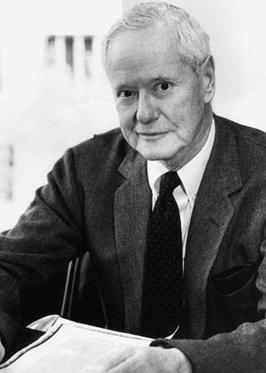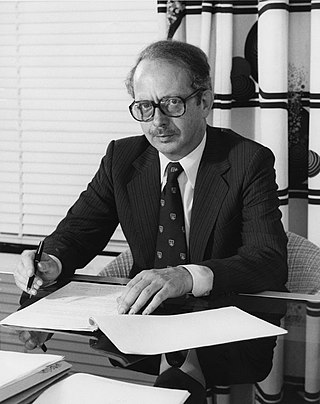A role is a set of connected behaviors, rights, obligations, beliefs, and norms as conceptualized by people in a social situation. It is an expected or free or continuously changing behavior and may have a given individual social status or social position. It is vital to both functionalist and interactionist understandings of society. Social role theory posits the following about social behavior:
- The division of labour in society takes the form of the interaction among heterogeneous specialized positions, we call roles.
- Social roles included appropriate and permitted forms of behavior and actions that recur in a group, guided by social norms, which are commonly known and hence determine the expectations for appropriate behavior in these roles, which further explains the position of a person in the society.
- Roles are occupied by individuals, who are called actors.
- When individuals approve of a social role, they will incur costs to conform to role norms, and will also incur costs to punish those who violate role norms.
- Changed conditions can render a social role outdated or illegitimate, in which case social pressures are likely to lead to role change.
- The anticipation of rewards and punishments, as well as the satisfaction of behaving pro-socially, account for why agents conform to role requirements.
Social conflict theory is a Marxist-based social theory which argues that individuals and groups within society interact on the basis of conflict rather than consensus. Through various forms of conflict, groups will tend to attain differing amounts of material and non-material resources. More powerful groups will tend to use their power in order to retain power and exploit groups with less power.

Robert King Merton was an American sociologist who is considered a founding father of modern sociology, and a major contributor to the subfield of criminology. He served as the 47th president of the American Sociological Association. He spent most of his career teaching at Columbia University, where he attained the rank of University Professor. In 1994 he was awarded the National Medal of Science for his contributions to the field and for having founded the sociology of science.

Conflict theories are perspectives in sociology and social psychology that emphasize a materialist interpretation of history, dialectical method of analysis, a critical stance toward existing social arrangements, and political program of revolution or, at least, reform. Conflict theories draw attention to power differentials, such as class conflict, and generally contrast historically dominant ideologies. It is therefore a macro-level analysis of society.

Institutions are humanly devised structures of rules and norms that shape and constrain individual behavior. All definitions of institutions generally entail that there is a level of persistence and continuity. Laws, rules, social conventions and norms are all examples of institutions. Institutions vary in their level of formality and informality.
Social theories are analytical frameworks, or paradigms, that are used to study and interpret social phenomena. A tool used by social scientists, social theories relate to historical debates over the validity and reliability of different methodologies, the primacy of either structure or agency, as well as the relationship between contingency and necessity. Social theory in an informal nature, or authorship based outside of academic social and political science, may be referred to as "social criticism" or "social commentary", or "cultural criticism" and may be associated both with formal cultural and literary scholarship, as well as other non-academic or journalistic forms of writing.

Structural functionalism, or simply functionalism, is "a framework for building theory that sees society as a complex system whose parts work together to promote solidarity and stability".
The term social order can be used in two senses: In the first sense, it refers to a particular system of social structures and institutions. Examples are the ancient, the feudal, and the capitalist social order. In the second sense, social order is contrasted to social chaos or disorder and refers to a stable state of society in which the existing social structure is accepted and maintained by its members. The problem of order or Hobbesian problem, which is central to much of sociology, political science and political philosophy, is the question of how and why it is that social orders exist at all.

Ralf Gustav Dahrendorf, Baron Dahrendorf, was a German-British sociologist, philosopher, political scientist and liberal politician. A class conflict theorist, Dahrendorf was a leading expert on explaining and analysing class divisions in modern society. Dahrendorf wrote multiple articles and books, his most notable being Class Conflict in Industrial Society (1959) and Essays in the Theory of Society (1968).

In the social sciences, social structure is the aggregate of patterned social arrangements in society that are both emergent from and determinant of the actions of individuals. Likewise, society is believed to be grouped into structurally related groups or sets of roles, with different functions, meanings, or purposes. Examples of social structure include family, religion, law, economy, and class. It contrasts with "social system", which refers to the parent structure in which these various structures are embedded. Thus, social structures significantly influence larger systems, such as economic systems, legal systems, political systems, cultural systems, etc. Social structure can also be said to be the framework upon which a society is established. It determines the norms and patterns of relations between the various institutions of the society.
Role theory is a concept in sociology and in social psychology that considers most of everyday activity to be the acting-out of socially defined categories. Each role is a set of rights, duties, expectations, norms, and behaviors that a person has to face and fulfill. The model is based on the observation that people behave in a predictable way, and that an individual's behavior is context specific, based on social position and other factors. Research conducted on role theory mainly centers around the concepts of consensus, role conflict, role taking, and conformity. The theatre is a metaphor often used to describe role theory.

This is an index of sociology articles. For a shorter list, see List of basic sociology topics.

A sociological theory is a supposition that intends to consider, analyze, and/or explain objects of social reality from a sociological perspective, drawing connections between individual concepts in order to organize and substantiate sociological knowledge. Hence, such knowledge is composed of complex theoretical frameworks and methodology.
In sociology, communicative action is cooperative action undertaken by individuals based upon mutual deliberation and argumentation. The term was developed by German philosopher-sociologist Jürgen Habermas in his work The Theory of Communicative Action.
System justification theory (SJT) is a theory within social psychology that system-justifying beliefs serve a psychologically palliative function. It proposes that people have several underlying needs, which vary from individual to individual, that can be satisfied by the defense and justification of the status quo, even when the system may be disadvantageous to certain people. People have epistemic, existential, and relational needs that are met by and manifest as ideological support for the prevailing structure of social, economic, and political norms. Need for order and stability, and thus resistance to change or alternatives, for example, can be a motivator for individuals to see the status quo as good, legitimate, and even desirable.

Sociology of terrorism is a field of sociology that seeks to understand terrorism as a social phenomenon. The field defines terrorism, studies why it occurs and evaluates its impacts on society. The sociology of terrorism draws from the fields of political science, history, economics and psychology. The sociology of terrorism differs from critical terrorism studies, emphasizing the social conditions that enable terrorism. It also studies how individuals as well as states respond to such events.

The sociology of education is the study of how public institutions and individual experiences affect education and its outcomes. It is mostly concerned with the public schooling systems of modern industrial societies, including the expansion of higher, further, adult, and continuing education.<re it means to provide help
A moral entrepreneur is an individual, group, or formal organization that seeks to influence a group to adopt or maintain a norm; altering the boundaries of altruism, deviance, duty, or compassion.

Deviance or the sociology of deviance explores the actions and/or behaviors that violate social norms across formally enacted rules as well as informal violations of social norms. Although deviance may have a negative connotation, the violation of social norms is not always a negative action; positive deviation exists in some situations. Although a norm is violated, a behavior can still be classified as positive or acceptable.

Sociology is a social science that focuses on society, human social behavior, patterns of social relationships, social interaction, and aspects of culture associated with everyday life. In simple words sociology is the scientific study of society. It uses various methods of empirical investigation and critical analysis to develop a body of knowledge about social order and social change. While some sociologists conduct research that may be applied directly to social policy and welfare, others focus primarily on refining the theoretical understanding of social processes and phenomenological method. Subject matter can range from micro-level analyses of society to macro-level analyses.






